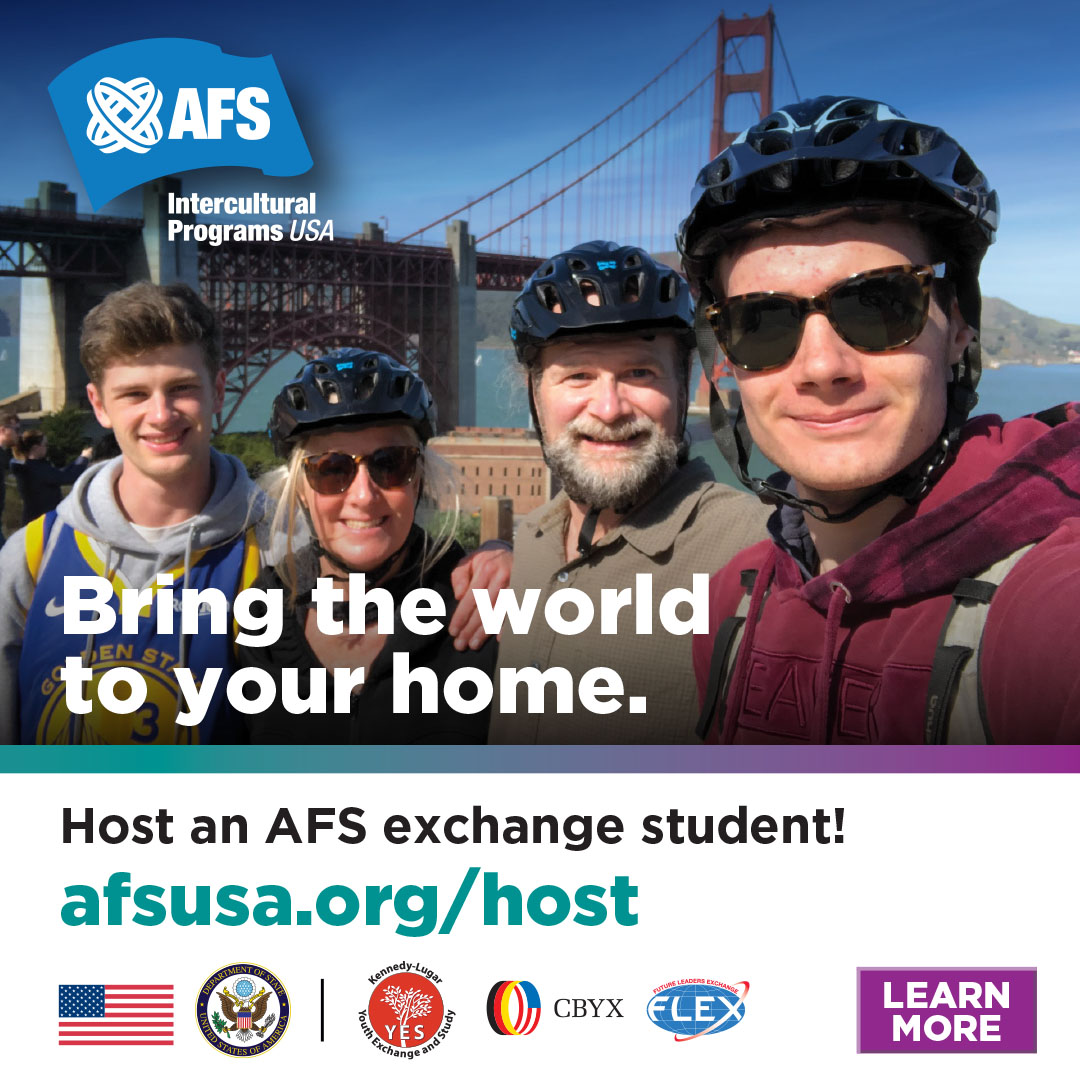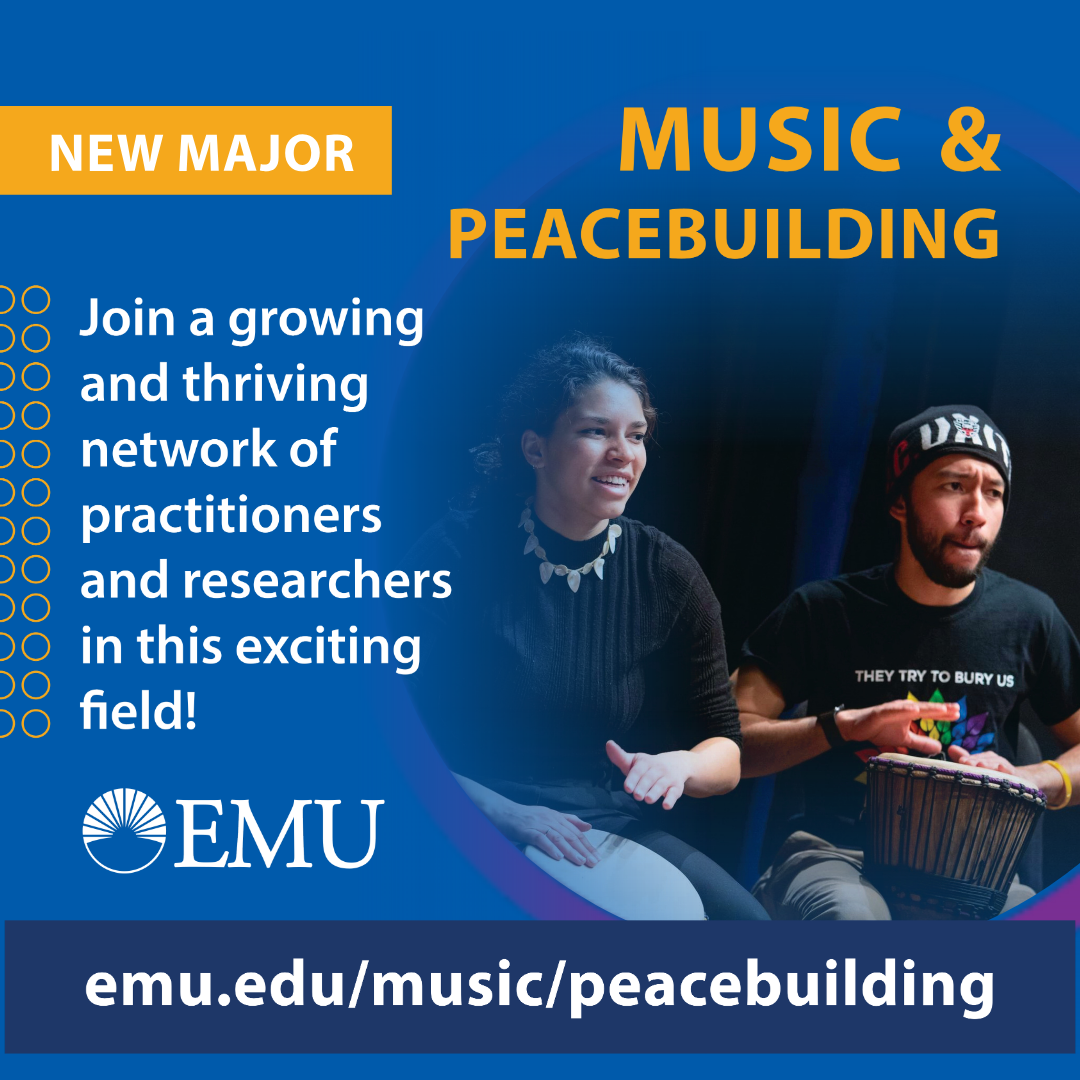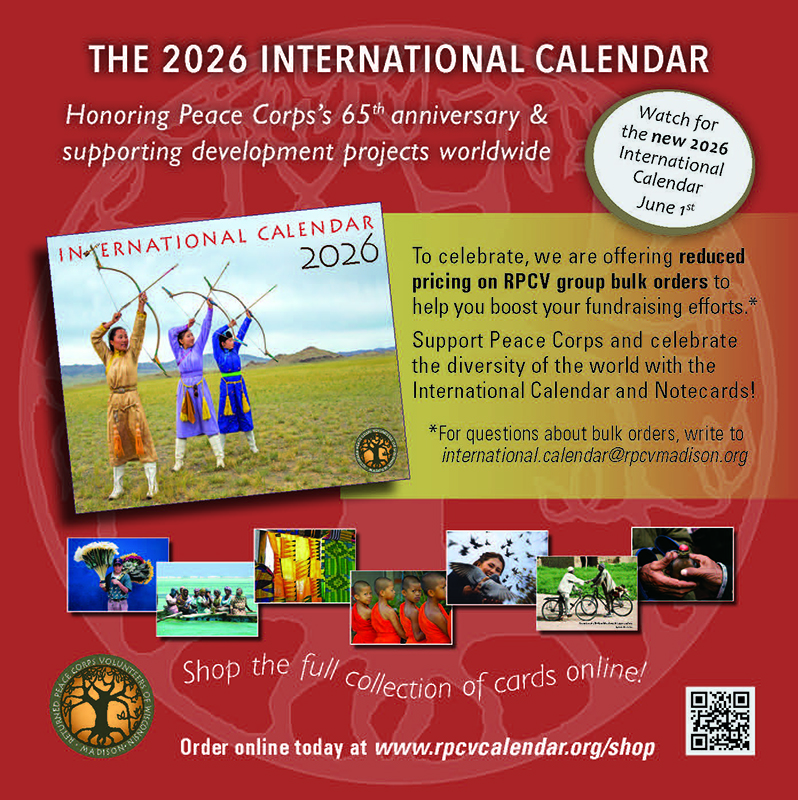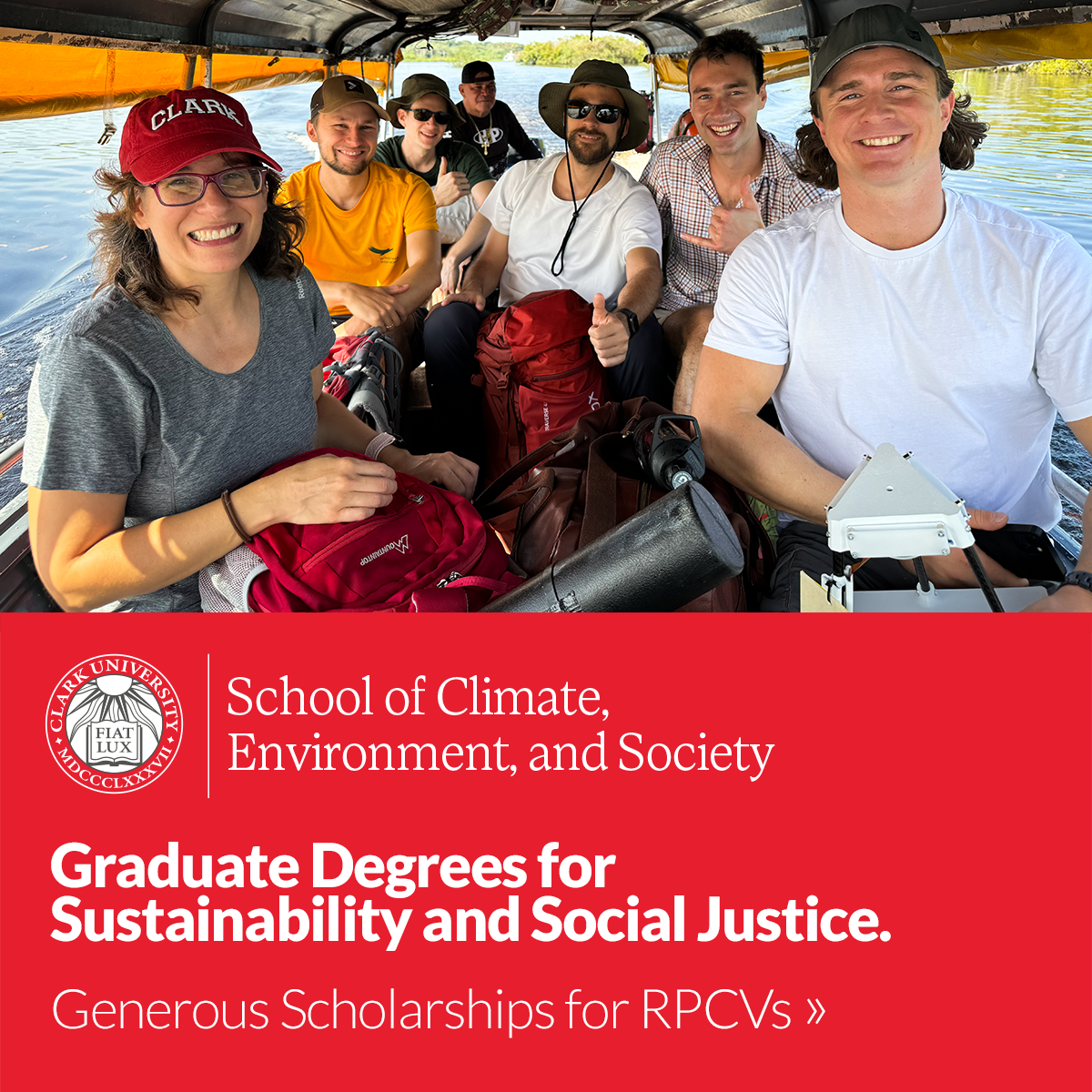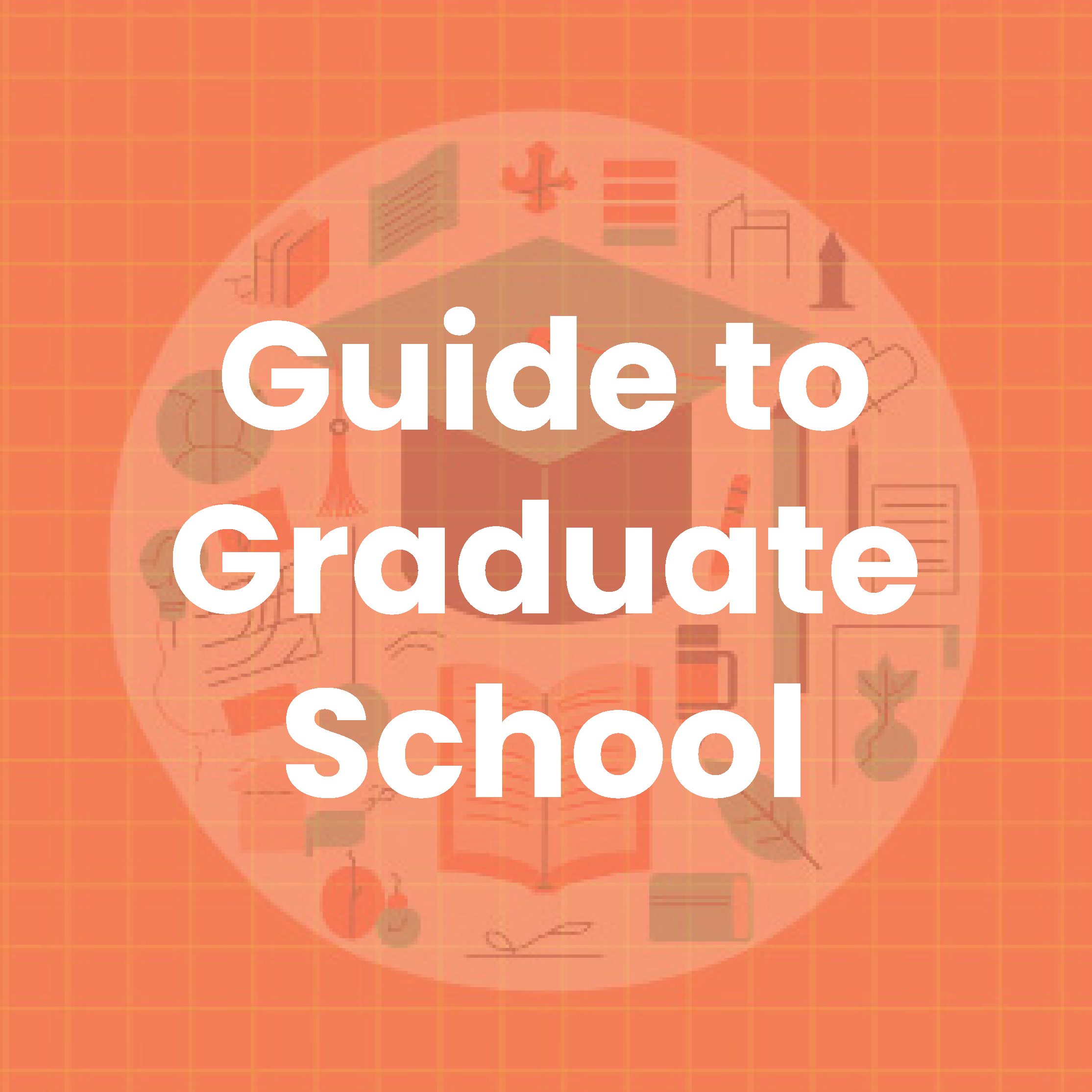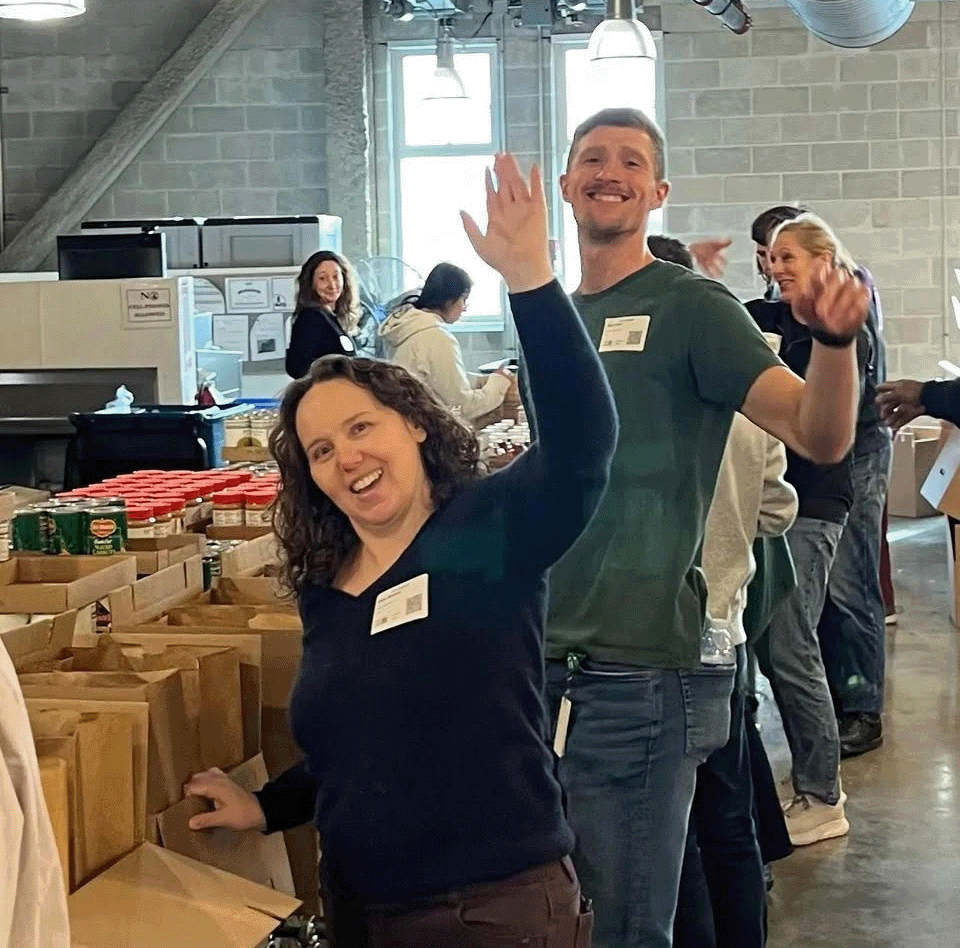
Group Dynamics
RPCV groups have thrived for years. NPCA wants to give them a bigger seat at the table
Serving in Peace Corps is a transformative experience that often inspires a deep desire to stay connected and continue making a difference in the world. Undoubtedly, it’s only natural for us to form communities with like-minded individuals who share this passion. Both formal and informal groups of Returned Peace Corps Volunteers have flourished ever since the first cohorts returned from their host countries in 1963.
As the current Affiliate Network Group Coordinator for the National Peace Corps Association’s Board of Directors, I bring a unique perspective to this role. As a Peace Corps Volunteer in Bolivia from 2000 to 2002, and as the daughter of a Returned Peace Corps Volunteer (Bob Owens, Peru 1970–73), I’ve witnessed firsthand the lasting impact of Peace Corps service. My father’s experience shaped his life and led to many meaningful connections, including meeting and marrying my Peruvian mother. As a child, I fondly remember summer trips centered around my dad’s RPCV group reunions, which exemplified the enduring bonds formed within the Peace Corps community.
My experience serving in Bolivia paralleled that of many other Volunteers. It had a profound impact on me, providing insight into the drive I witnessed in my father and his fellow RPCVs to maintain relationships and seek ongoing service opportunities, and to carry the torch of Peace Corps values here at home.
We all know of fellow RPCVs who founded nonprofit organizations or socially conscious businesses dedicated to serving locally and globally. Their service has made a tangible difference in the world, and they’ve also supported current Peace Corps Volunteers in their endeavors. They’ve pursued professions that allow them to recreate the sense of purpose and service they felt during their Peace Corps stints. This is a testament to the lasting impact of our experience, and something we should all be proud of.
The National Peace Corps Association didn’t emerge immediately upon the return of the first Volunteers. Its inception, first as the National Council of Returned Peace Corps Volunteers, took place in 1979, when leaders from various RPCV groups joined forces. The primary aim was to foster connections among these groups and coordinate efforts for meaningful action.
Since its establishment, NPCA has dedicated itself to serving as a vital link and advocate for diverse RPCV groups across the nation and around the globe through its affiliate program. NPCA recognizes the incredible work being done by these groups, and its role is not to overshadow their efforts but to amplify them.
More than 130 active RPCV groups, sometimes referred to simply as “affiliate groups,” currently have strong ties to NPCA through official affiliation. It’s important to note that this figure merely scratches the surface. Many RPCV groups operate independently, outside of direct affiliation with NPCA. As a nationally recognized 501(c)(3) organization, NPCA can serve as a facilitator of and champion for the goals and initiatives of RPCV groups, from fundraising to technical support. You will find a directory of RPCV groups in this issue of WorldView, as well as more information about the benefits of affiliating with NPCA.
The groups associated with NPCA are categorized as follows:
Regional Groups
Local and regional RPCV groups are vital community hubs that bring former Volunteers together in specific areas around the country and even the world. These groups offer a readily accessible pathway to engagement after Volunteers return home, providing invaluable support as individuals embark on new career paths or seek to reintegrate to life in the U.S. following their service abroad.
Upon my relocation to the U.S., joining groups like the Returned Peace Corps Volunteers of Washington, D.C. (RPCV/W) and, later, Maryland RPCVs, proved invaluable. These communities provided a supportive network where recent returnees like me as well as seasoned RPCVs could find mentorship, friendship, opportunities to participate in local service projects, and even jobs, ensuring the spirit of Peace Corps could remain part of our daily lives.
Most geographic groups host regular happy hour social events, offering RPCVs a chance to share a drink, swap stories, and network. Check out the NPCA website to find a group in your area
Country of Service Groups
Representing scores of countries where Peace Corps Volunteers have served, country of service groups unite RPCVs who cherish shared memories and traditions. But their impact surpasses nostalgia. These groups raise funds and offer ongoing support for projects in RPCVs’ former host countries. Remarkably, even after Peace Corps departs, they continue to serve and uplift their communities. Groups like Friends of Liberia and the RPCV Alliance for Ukraine are just two examples of groups that remain highly engaged in the countries where their members served, despite ongoing conflicts. They raise awareness about pressing issues, from natural disasters to celebrated achievements, embodying the enduring spirit of Peace Corps service long after Volunteers return home. The RPCV group High Atlas Foundation, for instance, raised nearly $25,000 for earthquake relief in Morocco in 2023.
Cause-Related and Affinity Groups
RPCVs come from diverse backgrounds and hold a range of political viewpoints, and as a result, we often engage in passionate discussions at reunions. However, there are pressing, often global, issues that unite us, which has led to the creation of cause-related and affinity groups.
For example, climate change is a critical concern, the effects of which every RPCV has witnessed firsthand; the group RPCVs for Environmental Action addresses this urgent issue through major advocacy campaigns. Another group, Peace Corps Community for Refugees, offers service opportunities at or near U.S. borders as part of its work on the refugee crisis, an issue that deeply affects many RPCVs that served in countries whose citizens have been forced to flee due to economic or security conditions. By uniting and taking action, RPCVs leverage their experiences to address pressing challenges on both a global and local level.
Workplace Groups
RPCVs naturally gravitate toward each other in the workplace, forming invaluable networks for mentorship and support. During my time at the U.S. Department of Agriculture, for example, I found fellow RPCVs to be among my most supportive colleagues.
The formalization of an RPCV group within the USDA provided a structured platform for camaraderie and guidance. Such groups have proliferated, especially within the federal government, highlighting the enduring bond among RPCVs and their crucial role in fostering professional growth and community in the workplace. In addition to the USDA, workplace groups exist at USAID, the Department of State, the Department of Homeland Security, the Department of Housing, and more.
NPCA’s Commitment
During Peace Corps’ 50th anniversary celebrations, NPCA recognized the profound impact of RPCV groups and the need for deeper engagement. Today, NPCA remains committed to serving as a vital link and advocate for RPCV groups. Recognizing their evolving needs, NPCA has implemented various mechanisms to ensure their voices are heard, their membership is robust, and their work is supported.
Reflecting on my time as an event manager and board member for RPCV/W, I recall leading the coordination of three signature programs on September 25, 2011, at Arlington National Cemetery. NPCA tasked our group with developing programming to mark the 50th anniversary of Peace Corps, capping off several days of events in Washington, D.C.
Working alongside RPCV/W board members and hundreds of volunteers, we embarked on a yearlong effort, organizing monthly social gatherings leading up to the culminating events. With input from various RPCV groups, we crafted a multifaceted program that honored President John F. Kennedy, paid tribute to fallen Peace Corps Volunteers and host countries, and envisioned the future of Peace Corps.
Despite the challenges that come with navigating different opinions, we ultimately shaped a successful day. NPCA’s collaboration was instrumental in executing the events, which included a poignant wreath-laying ceremony, a program at the Memorial Amphitheater, and a symbolic walk of Peace Corps flags across the Arlington Memorial Bridge. Over 5,000 RPCVs attended these events, making for an impressive commemoration.
When it comes to NPCA governance, a significant change occurred in 2010, when an NPCA member-elected board seat was created for an Affiliate Group Network Coordinator—the seat I now hold. This individual is tasked with liaising between RPCV group leaders and NPCA, and ensuring that RPCV groups have a prominent presence among NPCA’s key decision-makers, notably on the Executive Committee of the Board of Directors.
For the past year, the committee has expressed a deep desire for more robust engagement with all RPCV groups. As a result, the NPCA Board created a standing committee dedicated solely to working with affiliate groups, demonstrating the organization’s commitment to recognizing the importance of RPCV groups.
“RPCV groups are a driving force behind NPCA’s vision and mission,” said Dan Baker, NPCA president and CEO. “The common values, commitment to communities, countries of service, and causes [that these] groups demonstrate on a daily basis define who we are as a community.”
Kristina J. Owens (Bolivia 2000–02) spent 10 years as a molecular biologist for the U.S. Department of Agriculture, and is now an English as New Language Teacher at the Rochester City School District in New York State.
Related Articles
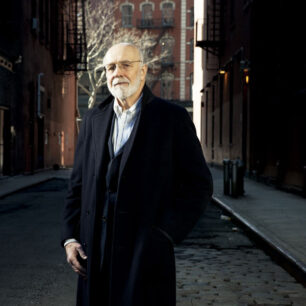
Made in America
Charlie Clifford (Peru 1967–69) is the founder of Tumi Inc., a global travel luggage brand, as well as Roam Luggage.…
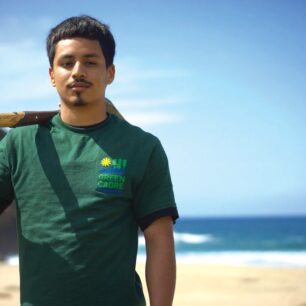
“Bigger Than Peace Corps”
California Service Corps is the largest state-based service program in the U.S. , with more than 10,000 volunteers across the…
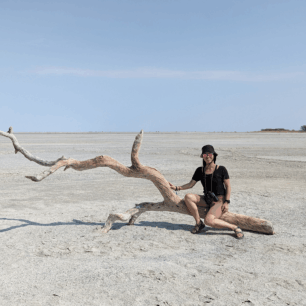
Signal Boost
The digital world is awash in voices seeking monetary reward or improved social status, as the online acronym goes, IRL…
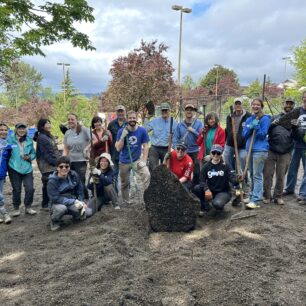
Garden of Refuge
As part of our commitment to continued service, the Seattle Peace Corps Association (SEAPAX) is partnering with World Relief Western…

